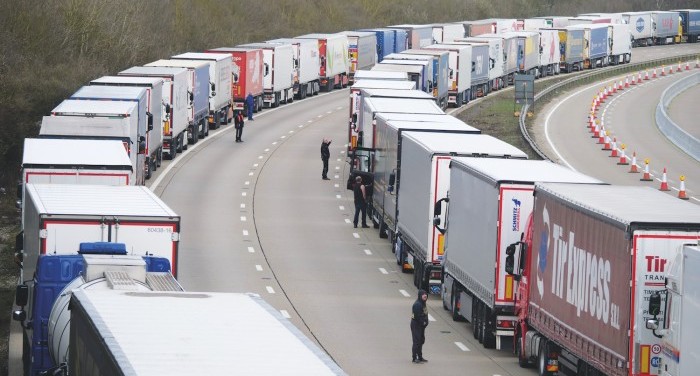Already much-reduced shipments of cull sows have been cancelled due to the closure of Dover port, after France banned UK travellers and freight due to the new strain of COVID-19.
France shut its border with the UK for 48 hours on Sunday, meaning no lorries or ferry passengers will be able to sail from the port of Dover. This has exacerbated problems that have already seen long queues of freight lorries in Kent due to a combination of Brexit stockpiling and COVID-19 disruption.
More countries have imposed bans on travel and freight from the UK, with Hong Kong joining the likes of Switzerland, Germany, and Italy to suspend UK flights. Belgium, the Irish Republic and Canada have also suspended flights, while Austria is also set to bring in a ban, the BBC reports. Bans in other nations are set to last at least until January 31.
The prime minister will chair a meeting of the government’s emergency committee, COBRA, later while EU member states are due to meet in Brussels to discuss a co-ordinated response.
The cull sow trade has already been seriously disrupted in recent months due to problems with COVID-19 in plants in Germany and, recently, an outbreak in a UK plant that usually sends large volumes to the EU.
In its latest weekly trading update, Thames Valley Cambac said: “The cull sow exporters had planned minimal kills, but these were cancelled as Dover port was closed by the French decision over the new coronavirus strain prevalent in the UK.”
Quality Meat Scotland (QMS) chief executive, Alan Clarke, said: “Businesses across Scotland’s red meat supply chain rely upon quick, convenient access to sea border crossings to and from UK ports.
“They are prepared to do their part in complying with any new checks and procedures to ensure Scotch produce held at Dover can be enjoyed over the festive period and what they need in return is for government to find a resolution regarding freight coming into and out of the UK during the pandemic.
“QMS will be keeping daily contact with businesses to monitor the situation as it evolves and will be consulting with government and other stakeholders to ensure they have the support and guidance needed.”
Depressingly turbulent
Overall, the last full trading week of the year proved to be ‘depressingly turbulent’ with serious breakdowns causing much disruption, according to TVC.
“This rolled a good number into the short Christmas week, and it proved difficult to accommodate. Supplies remained ample and the roll just added to the backlog,” it said.
All contract price contributions stood on, but overall prices were affected by a large fall in the SPP, down 1.79p at 149.26p. There was a small rally in fresh meat Christmas demand but limited to early week.
European markets were similar but the price quotes in sterling diminished as the Euro weakened and ended the week down 1.46p at 90.83p.
Weaner movements are getting more restrictive with regular trades not immune to being changed or cut back or cancelled altogether. The impending holiday season will only compound the problems, TVC said.
The AHDB weaner price saw the weighted average for a 30kg store pig quoted at £53.65 and there was no quote for a 7kg weaner




